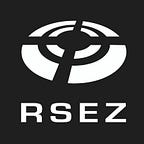The Investor’s Guide To Surviving (And Thriving) At a Post Covid-19 World
Have you heard about Special Economic Zones (SEZ)? Since antiquity, governments, emperors, kings and queens have been providing traders and investors with special respites from standard import-export tax regimes and regulations in return for a steady stream of much-needed revenue. One of the most well-known success stories of implementation of SEZ in the 20th century is China’s well thought through process, going from being one of the most economically strained countries to one of the wealthiest economies in the world. China’s experience with SEZs has developed over time. It began in the early 1980s, when the government introduced market-oriented reforms, in selected SEZ areas such as Shenzhen. Since then, SEZs have contributed significantly to China’s development. They have permitted experimentation with market-oriented reforms and acted as a catalyst for efficient allocation of domestic and international resources. SEZs have contributed 22% of China’s GDP, 45% of total national foreign direct investment, and 60% of exports. China’s SEZs are estimated to have created over 30 million jobs and increased the income of participating farmers by 30%. Today, Special Economic Zones apply a multi-sectoral development approach and focus on both domestic and foreign markets. They offer an array of incentives including but not limited to, infrastructure, tax and customs exemptions, and more simple administrative procedures.
In the light of Covid-19 second wave around the world and the financial strain on most economies it brought, it is hard to remain positive. However, now more than ever, it is significant to talk about how Europe is dealing with the unexpected economic burden and how countries and entrepreneurs can come out of this unprecedented situation stronger. This year, of course, Latvia has experienced a recession in the first half of the year, just like any other European Union economy. However, due to the proactive government approach, to date, Latvia experienced a smaller economic downturn than the EU average.
Furthermore, Latvia’s government is determined to help support entrepreneurs and drive business across Latvia. For example, starting 30 December 2020, entrepreneurs affected by the crisis will be able to receive an extension of the deadline for the payment of taxes or a division of the taxes into several payment periods for a period of up to three years. European Union in the light of the coronavirus crisis has launched support programs totalling a whooping €3.7 trillion. For people who want to invest in Latvia, it poses a great opportunity. European Commission has released a proposal, highlighting the framework of the economic recovery of the European economy in the next seven years allowing Latvia to have access to almost €12 billion from the EU budget or as much as in the last 15 years combined. One of the schemes will support undertakings with export activities affected by the coronavirus outbreak. It is expected the programme to provide loans going up to €160 million. The support will be accessible to mid-sized and large undertakings whose exports represent more than 30% of their annual turnover.
Special Economic Zones (SEZs), or industrial parks, are spreading around the globe and can be successful instruments to promote industrialization when implemented correctly in the right context. Latvia operates 5 Special Economic Zones, with one of them being the Rezekne Special Economic Zone with the total area of 1155 ha. Even though not all SEZ’s around the world are successful, most of the failures can be traced back to problems such as meagre site locations that require heavy capital expenditures or that are far away from infrastructure hubs. RezekneSpecial Economic Zone area includes the territory of Rēzekne City and the rural territory of Vērēmi, Griškāni, Ozolaine parishes, and it is one of the most important crossroads of international transport corridors with direct access to global markets in the EU, Russia, and CIS. However, nearly all free zones in the world, in the light of COVID-19, are affected economically. In September, in the Rezekne Special Economic Zone, due to COVID-19 impact, 76.5% of companies reported a decrease in turnover, while 17.6% of enterprises stated that turnover increased. However, the spread of the coronavirus has been successfully limited. There have been no cases of COVID-19 in the Rezekne Special Economic Zone. Therefore, the situation is slightly different regarding employment. Majority of enterprises (70.6%) were able to retain all their employees. 23.5% of enterprises have increased the number of employees, and only 11.8% have decreased. Approximately 35% of enterprises expect an improvement of economic conditions in the near future, and 47.1% of enterprises expect the economic situation to remain stable. Furthermore, Rezekne Special Economic Zone has offered support in the form of the reduction of rents and the implementation of measures to reduce and prevent the consequences of COVID 19, including the purchase of protective equipment, employee training programs, etc.
Conducting the business activity in a Special Economic Zone based on a relevant permit can enable, among other advantages, a beneficiary from income tax exemptions and real estate tax exemptions. The benefits of Rezekne Special Economic zone, apart from being a major railroad hub, include up to 100% of real estate tax reduction, up to 80% of corporate income tax reduction and up to 80% reduction on withholding tax for dividends, management fees and fees for using IP (intellectual property). Even though the COVID-19 pandemic and its impact on the global FDI landscape is testing the resilience of free zones, in Rezekne Special Economic Zone investment flow will be strengthened by the increase in public investment, set out by government decisions. Furthermore, in recent years, several infrastructure development projects were implemented for the reconstruction of roads and engineering communications. Construction and renovation of production facilities, as well as the revitalization of the industrial territories, were concluded, worth more than €20 million. Therefore, it is believed that the mentioned investments and situation in Latvia in the context of COVID-19 will allow new business to flourish in Rezekne Special Economic Zone.
